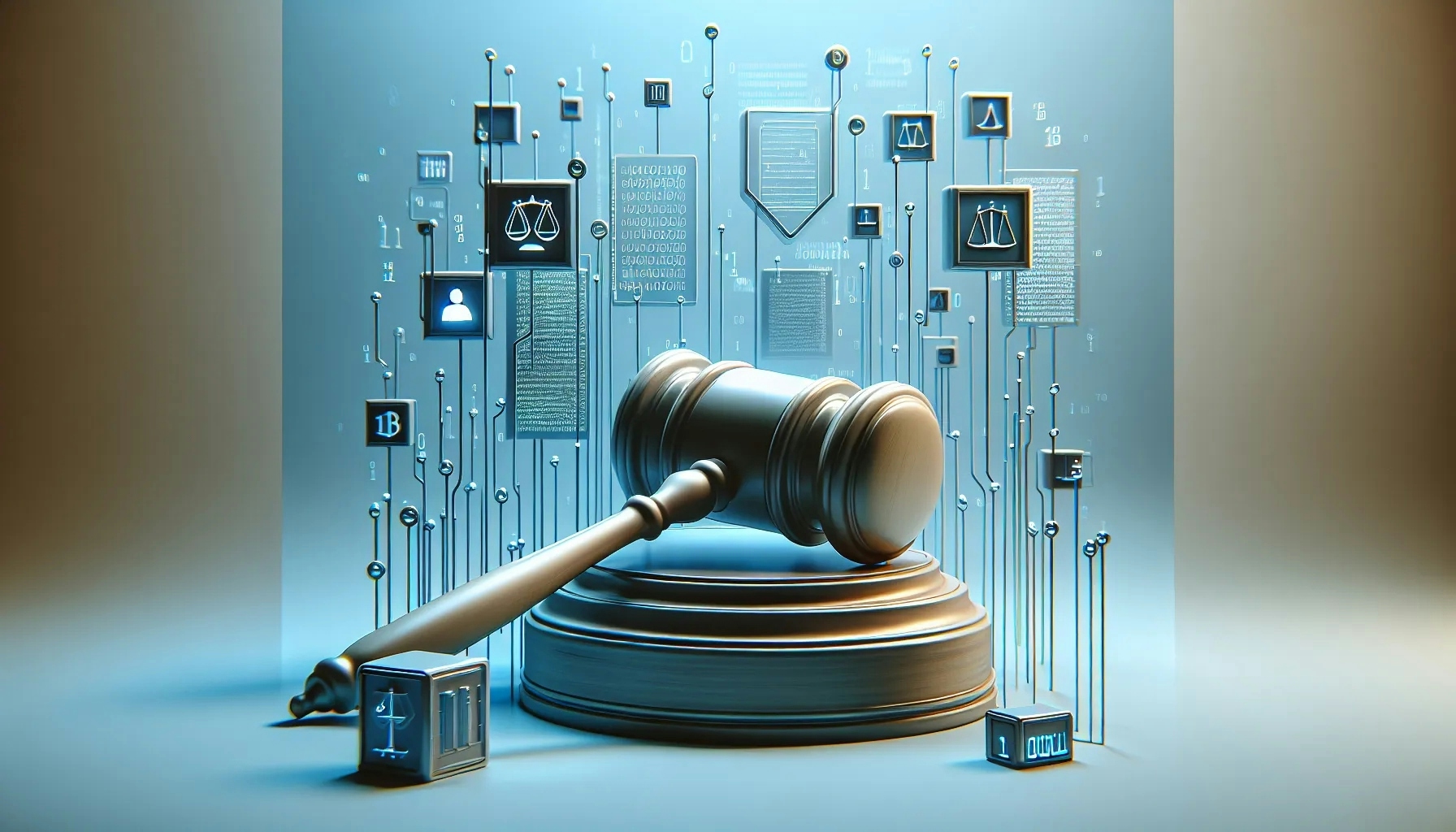The Future of Constitutional Law in the Digital Era
Lawyer Magazine

As we stand on the precipice of the digital era, the future of constitutional law is a topic of intense debate. The digital landscape is rapidly evolving, and with it, the legal challenges we face. This blog post delves into the implications of this digital revolution on constitutional law, exploring the potential changes, challenges, and opportunities that lie ahead.
The Digital Era: A New Legal Frontier
The digital era has ushered in a new age of connectivity and information sharing. This transformation has profound implications for constitutional law. The internet, social media, and digital technologies have created a new legal frontier that is yet to be fully explored.
In the realm of free speech, for instance, the digital era presents both opportunities and challenges. On one hand, digital platforms have democratized information, allowing for greater freedom of expression. On the other hand, they have also given rise to issues such as hate speech, misinformation, and online harassment.
Similarly, the right to privacy has taken on new dimensions in the digital era. The proliferation of data and the rise of surveillance technologies have raised pressing questions about the limits of government surveillance and the protection of personal data. These issues are forcing us to rethink traditional notions of privacy and to redefine the boundaries of constitutional law.
The Future of Free Speech in the Digital Era
The future of free speech in the digital era is a topic of intense debate. The internet has fundamentally changed the way we communicate, giving rise to new forms of expression and new challenges to free speech.
One of the key challenges is the issue of online hate speech. While the internet has given voice to marginalized communities, it has also provided a platform for hate speech and online harassment. This has led to calls for greater regulation of online speech, but such regulation must be balanced against the right to free speech.
Another challenge is the issue of misinformation. The spread of fake news and misinformation on digital platforms has serious implications for democracy and public discourse. This has led to calls for greater accountability and transparency from digital platforms, but again, these measures must be balanced against the right to free speech.
The Future of Privacy in the Digital Era
The future of privacy in the digital era is another area of concern. The proliferation of data and the rise of surveillance technologies have raised pressing questions about the limits of government surveillance and the protection of personal data.
One of the key challenges is the issue of data protection. In the digital era, data has become a valuable commodity, and the collection and use of personal data by corporations and governments have raised serious privacy concerns. This has led to calls for stronger data protection laws, but such laws must be balanced against the need for security and economic growth.
Another challenge is the issue of government surveillance. The rise of surveillance technologies has given governments unprecedented powers to monitor their citizens, raising serious concerns about the right to privacy. This has led to calls for greater oversight and regulation of government surveillance, but again, these measures must be balanced against the need for security.
The Role of the Judiciary in the Digital Era
The judiciary plays a crucial role in navigating the challenges of the digital era. As the guardian of the constitution, the judiciary must interpret and apply constitutional principles in the context of the digital era.
One of the key challenges for the judiciary is the issue of jurisdiction. The internet is a global medium, and digital crimes often involve multiple jurisdictions. This raises complex questions about the application of national laws in a global context.
Another challenge for the judiciary is the issue of technological literacy. The digital era requires a deep understanding of technology and its implications for constitutional law. This requires ongoing education and training for judges and legal practitioners.
The Role of Legislation in the Digital Era
Legislation also plays a crucial role in navigating the challenges of the digital era. Legislators must craft laws that protect constitutional rights while addressing the unique challenges of the digital era.
One of the key challenges for legislators is the issue of balancing rights. The digital era requires a delicate balance between the right to free speech and the need to combat hate speech and misinformation. It also requires a balance between the right to privacy and the need for security and economic growth.
Another challenge for legislators is the issue of technological change. The digital era is characterized by rapid technological change, and laws must be flexible enough to adapt to these changes. This requires ongoing dialogue and collaboration between legislators, technologists, and civil society.
The Role of Civil Society in the Digital Era
Civil society also plays a crucial role in navigating the challenges of the digital era. Civil society must advocate for the protection of constitutional rights and hold governments and corporations accountable.
One of the key challenges for civil society is the issue of digital literacy. The digital era requires a deep understanding of technology and its implications for constitutional rights. This requires ongoing education and advocacy.
Another challenge for civil society is the issue of digital inclusion. The digital era has the potential to exacerbate social inequalities, and civil society must advocate for digital inclusion and equal access to technology.
Embracing the Future of Constitutional Law in the Digital Era
As we navigate the challenges of the digital era, the future of constitutional law remains uncertain. However, by engaging in ongoing dialogue and collaboration, we can shape a future that protects constitutional rights while embracing the opportunities of the digital era. The journey may be complex, but the potential rewards – a more connected, inclusive, and just society – are well worth the effort.